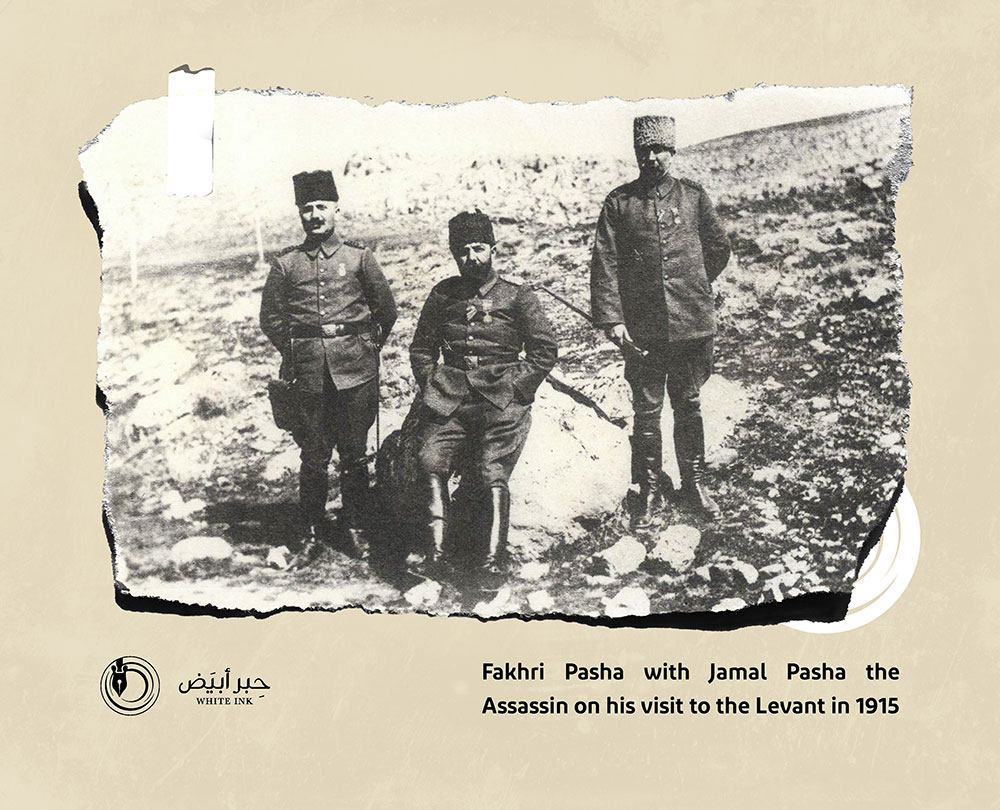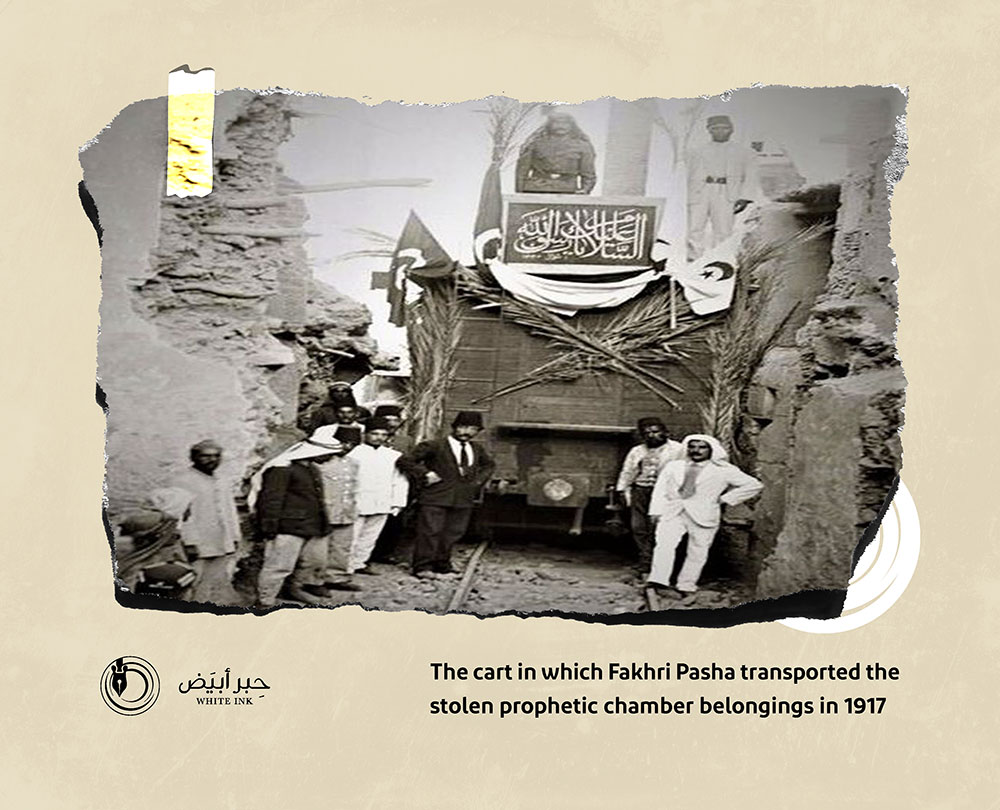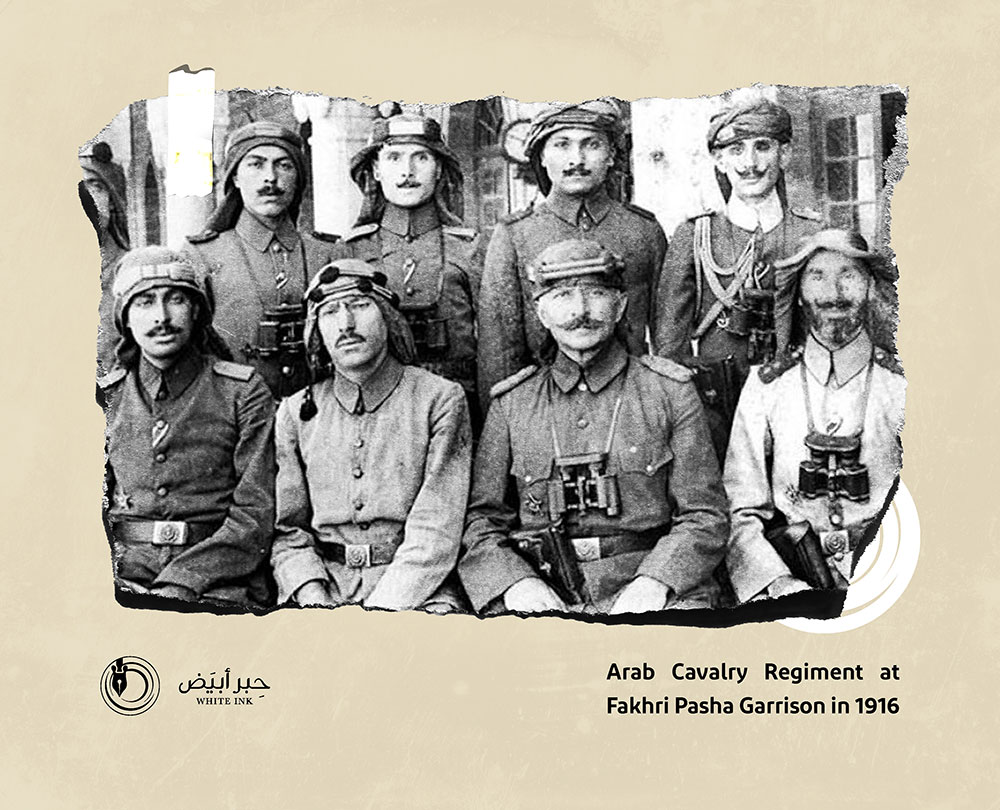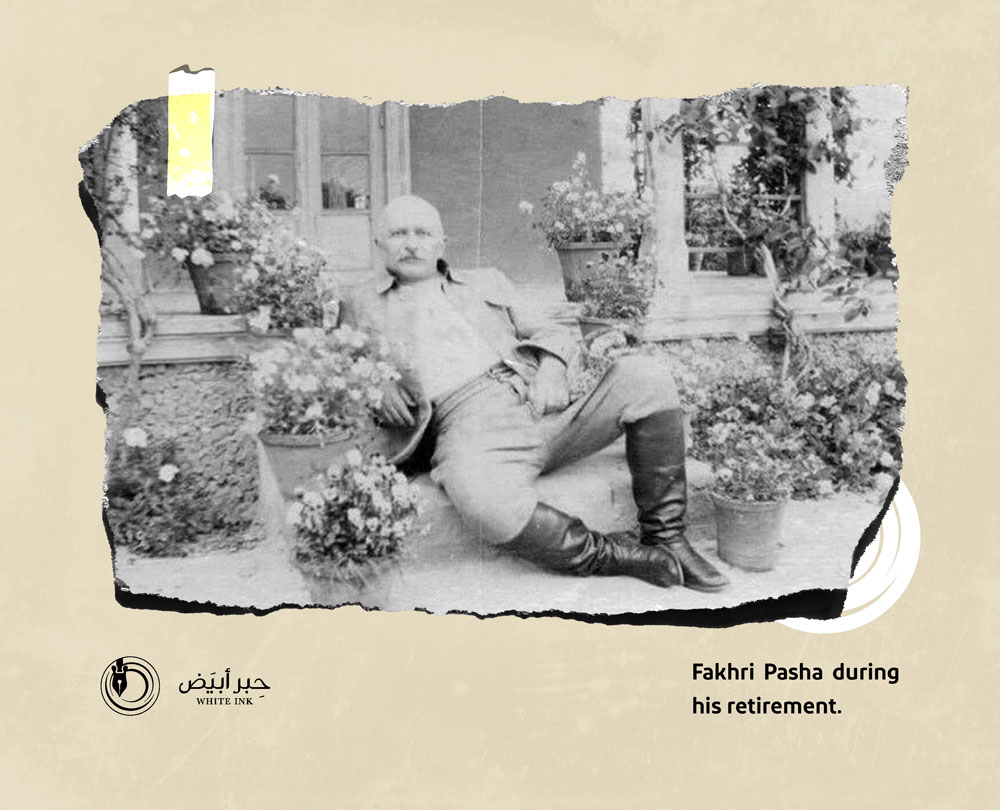
"Fakhri" Ottoman
The "Bullet" of the last agony
They tortured Medina with the appointment of the Turkish “Tiger”.

An image from the three options with the file Omar Fakhreddin Turkkhan Pasha
1367-1285 AH)
1948-1868 AD )
Reference:
Feridun Kandemir, Defending Medina (the last of the Turks under the shades of our Prophet ) translated by: Al-Medina Al-Munawwarah Research and Studies Center, (Medina: dn, dt).
Reference:
Feridun Kandemir, Defending Medina (the last of the Turks under the shades of our Prophet ) translated by: Al-Medina Al-Munawwarah Research and Studies Center, (Medina: dn, dt).
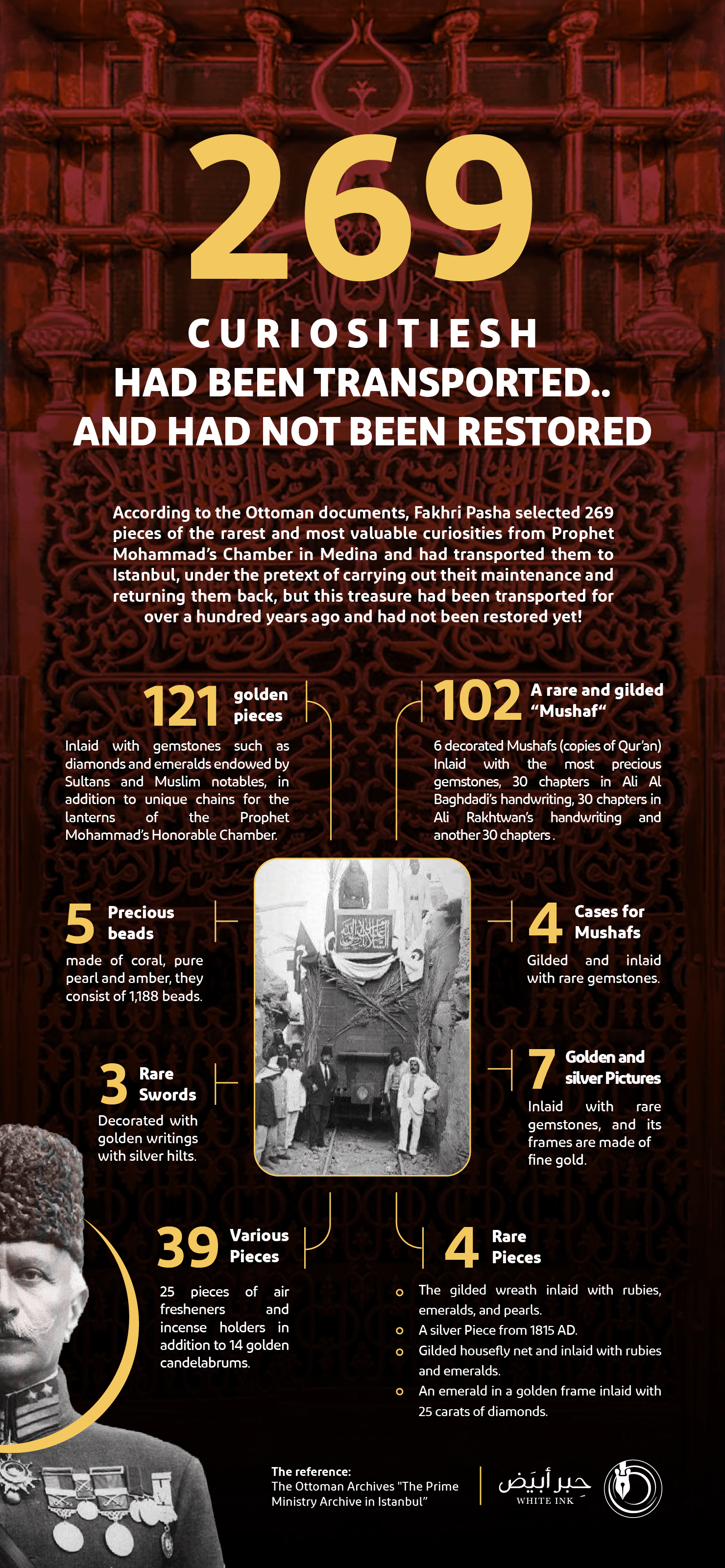

The First Massacre
“Al Saket” in Al Awali
He wanted the Arabs to combat among themselves to cover his crimes.

Has killed mothers before killing their children.

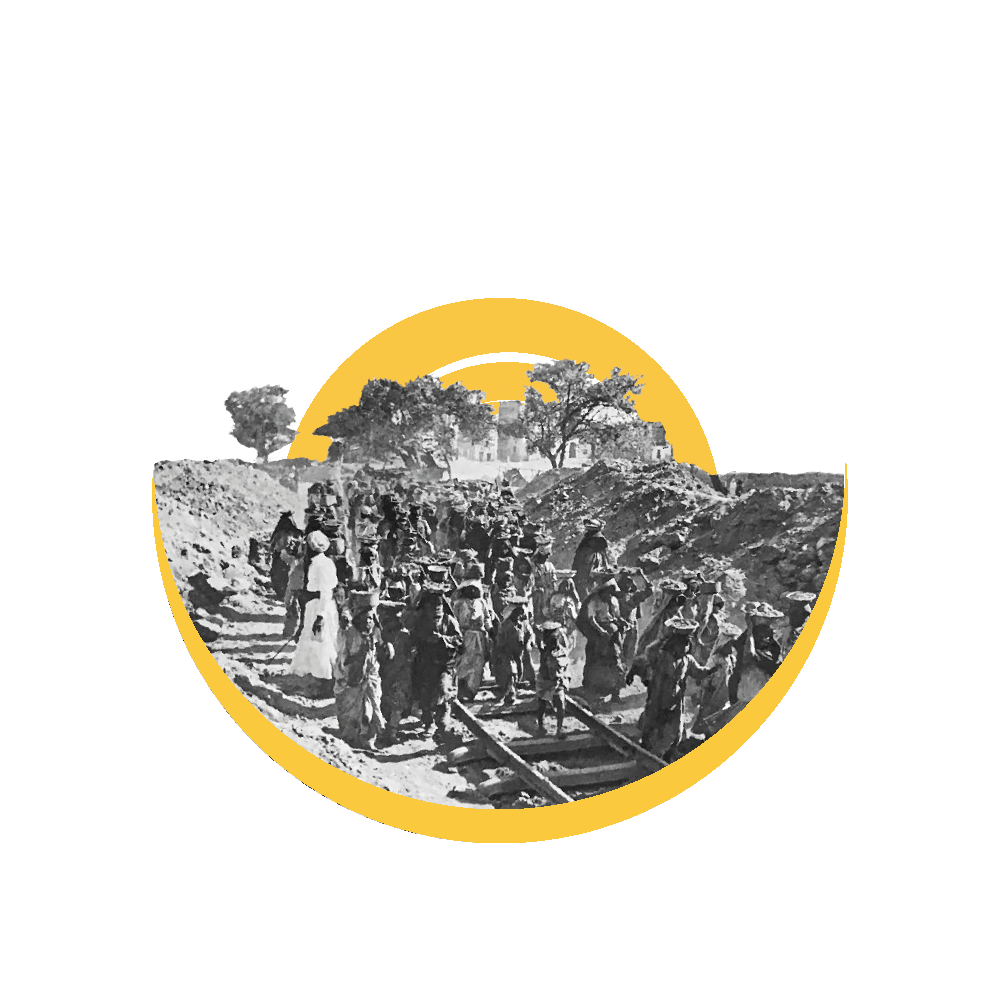
He Set Aside Food Stores for His Soldiers
He Fed the Townspeople
“Plain Bread”
He provided cats and animal and even human corpses as food for the hungry

He prohibited merchants from selling and buying, in addition to confiscating food from the market.

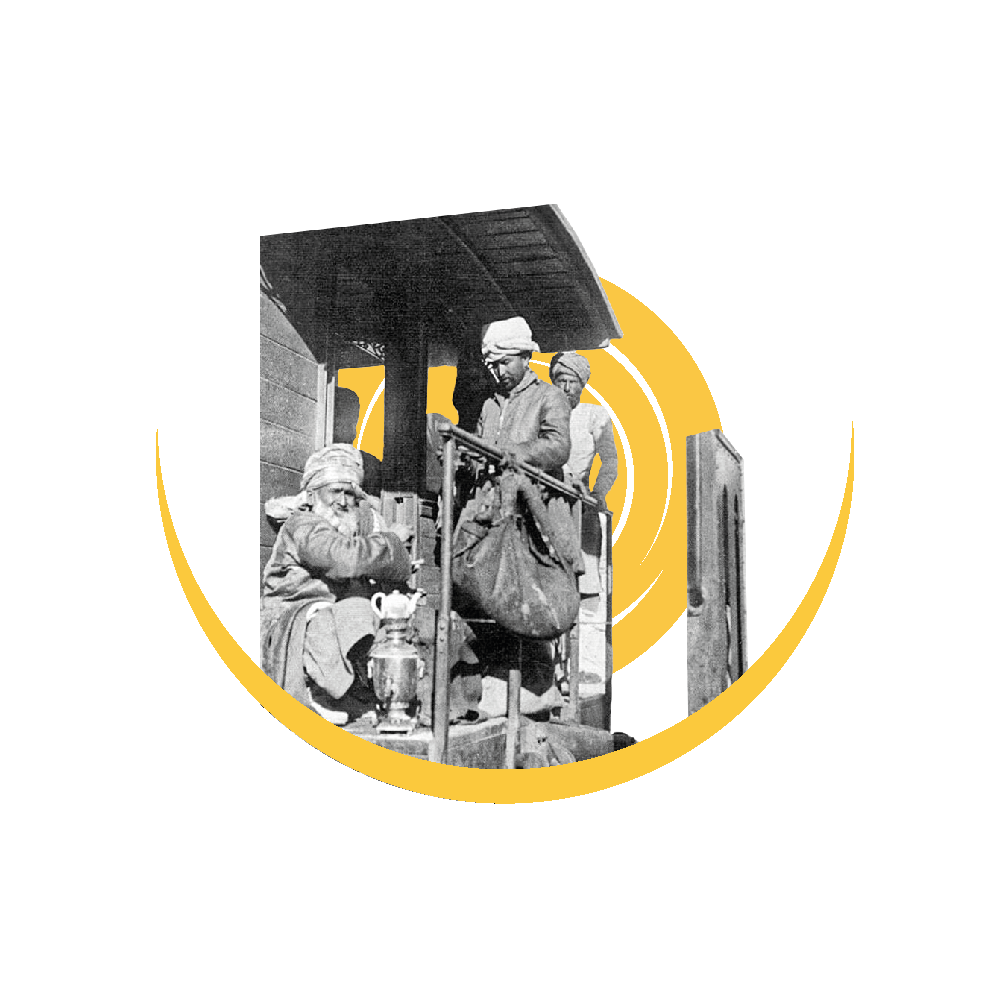
Deportations Trips “Seferberlik”
Cries of Torment Have Placed Great Stress
on the Turkish “Serpent” Carriages
After 13 centuries they applied "Martial" law in the land of prophecy.

Abd al-Haq Naqshbandi:
Abdul Haq bin Abdul Salam Al Naqshbandi was born in Medina in (1322 AH / 1904 AD). He was one of the most important authors in the modern era in Medina. He lived in the period in which Fakhri Pasha was appointed as a governor to Medina. Since he was between 12 and 16 years old, he was aware of the exact details of tragedies and events that had occurred in it.
Abdul-Haq Al-Naqshbandi, Our Recent History, “The Complete Works of the author Abdul-Haq Al-Naqshbandi” (Jeddah: Abdul Maksoud Khoja, 2005).
They displaced the "People of Medina" from Bosra to Bulgaria.

Turkish Gandemir described the situation in the railway station in which the people were preparing to leave on March 1917) ,14 AD); that it was exuding of pain. Where soldiers were cramming people into the train cars and beating the horses with whips. While the scene of mass crying was present among men, women and children; and expressions of farewell. Although he was one of the garrison, he was unable to bear the situation, and portray it as a heart-wrenching.


